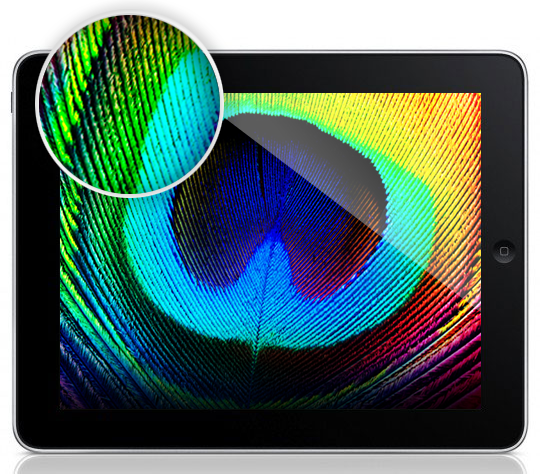Between quality control issues at LG Display that were finally reported as resolved in September, and the ongoing patent litigations between Apple and Samsung, Sharp could become the next display vendor for Apple’s iPads.
When the iPad 2 launched in March, Apple quickly turned to Samsung and Chimei Innnolux as customers complained of light leakage around the bezel of LG-based displays. For much of the year, a combination of quality control issues and late shipments had Apple turning to these other manufacturers to pick up the slack. At the end of August, LG Display finally shipped its due quota of four million panels. The iPad 2 didn’t begin shipping on time until after July. While LG Display expects supply shipments to return to normal, the failures of LG Display to correct its manufacturing issues on time and the untrustworthiness of Samsung would have Apple looking for alternatives. Sharp could be the premium candidate for future iPad displays, such as next year’s rumored Retina Display for the iPad 3.
According the Wall Street Journal, Sharp has reported they’ll begin mass-producing smaller displays at the Kameyama No. 2 plant in Mie Prefecture by the end of the year, a plant previously used solely for the production of TV panels. WSJ reports that Sharp already supplies displays for Apple’s iPhones, and that they could become the premier supplier next year with the introduction of newer models. Apple’s alleged investments in Sharp’s panel manufacturing facilities in Japan lend some additional credence to this claim.
Samsung Chief Operating Officer and President Lee Jae-yong said in October he had discussions with Apple Chief Executive Tim Cook about extending Samsung’s deal to supply parts to Apple through 2013-2014.
Component deals in a competitive market, however, may keep Samsung in the loop. With proof of manufacturing capability and the technology already in place, Samsung is still a critical component of Apple’s supply chain. At the end of the fourth fiscal quarter in September, Apple reported 11.1 million iPads sold compared to 4.2 million iPads sold just a year ago.
[via WSJ]


